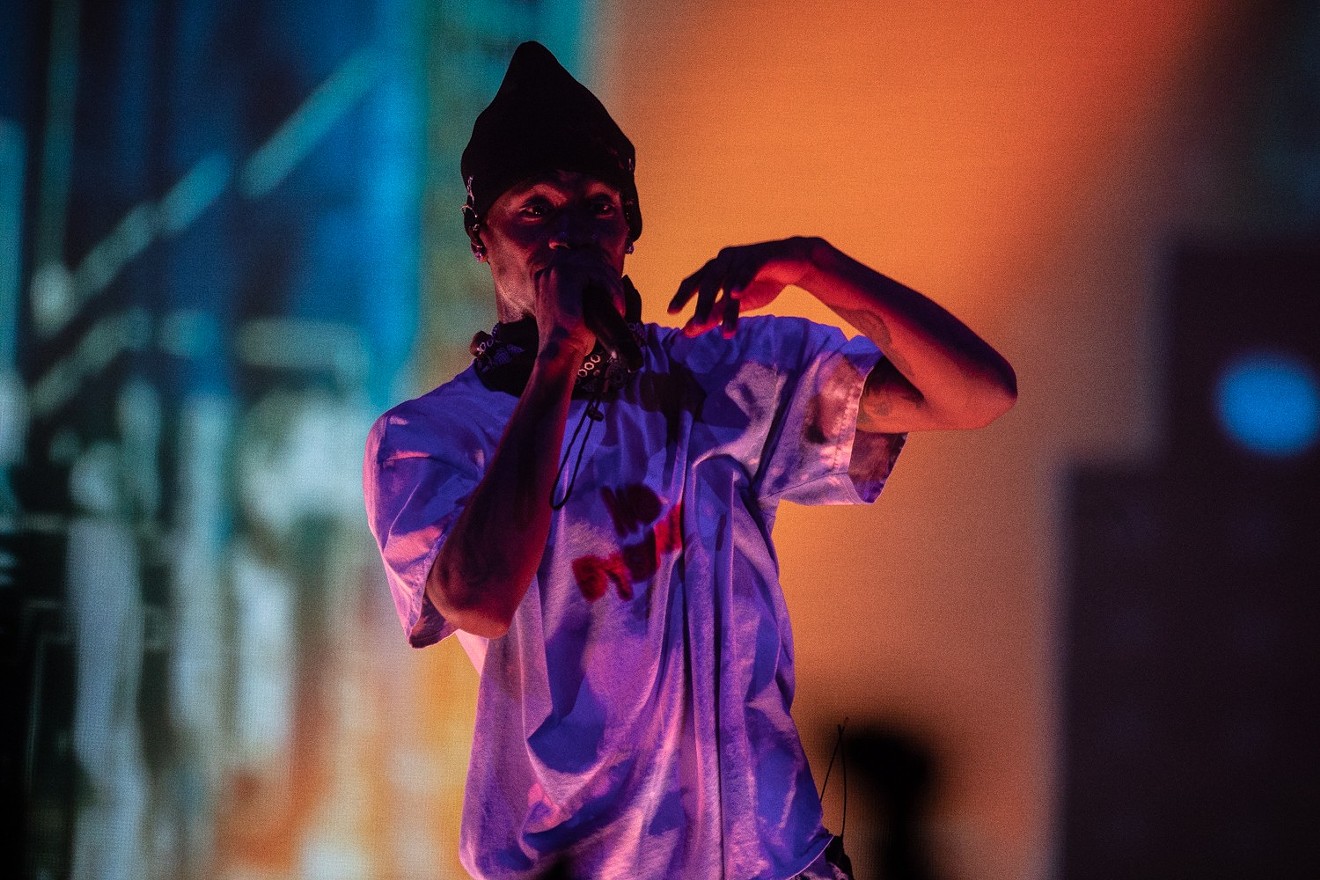$95 for a hoodie. $65 for a long-sleeve tee. $40 for a goddamn baseball cap.
Clearly this man is either out of his mind or a financial criminal, probably both, which in this country makes one a genius. Unfortunately, Scott is only one such offender in the market of exorbitant music merchandise. There's also Kanye West, who, along with his Yeezy brand and footwear collabs with Adidas, also sells tour shirts at his concerts for $90 a pop.
This practice has risen around the culture of streetwear. Heavily associated with hip-hop, this genre of fashion prioritizes graphic T-shirts, hoodies, sneakers, and casual comfort over more traditional, sartorial options like suiting. You'd think this would make it cheaper, right? Maybe in the past, but in recent years, streetwear has become a major fashion phenomenon, beginning with cult brands like Supreme and Palace and extending up to luxury fashion houses.
2017 arguably saw the peak of streetwear's infiltration into haute couture. Gucci logo tees were all the rage among rappers and fans. Louis Vuitton released a collaboration with Supreme that mixed its famous monogram with the New York brand's infamous "box logo." Then there's the "ugly sneaker" trend, which sees brands trying to outdo each other by designing the most outrageous, out-of-pocket, '90s athletic wear-inspired shoe they can. Prices range from Fila's sawtoothed Disruptor II ($65) to the infamous Balenciaga Triple-S, which retails for $895.

A merch booth at Travis Scott's show at Talking Stick Resort Arena, Tuesday, December 18, 2018.
Douglas Markowitz
How did this happen? Eschewing the traditional seasonal fashion cycle, many brands sell certain items in limited quantities directly to fans online. This is called a "drop," and unless you're quick with your browser-refreshing or you're using a special bot, you're unlikely to get what you want. The culture of "sneakerheads" and "hypebeasts," die-hard fans of streetwear brands that will do anything to secure a coveted collab or special item, revolves around these drops. Some power users buy in bulk for the gray market. Most simply swarm like a pack of ravenous piranhas around items like the yearly Supreme x Commes des Garcons collab or those sick Nike x Undercover React Element 87 sneakers I wanted six months ago but couldn't fucking get.
This phenomenon is said to have started with Supreme. Unlike most labels, which tend to produce more of a garment if it's selling well, Supreme limits production of its most popular and unique items – from the famous box logo sweatshirts released at the end of every season to a literal brick, a visual pun on the expression "bricking a fit" (failing to pull off an outfit) – creating an artificial scarcity that keeps supply low and demand sky-high. Every Thursday, lines snake around the block at its physical stores in New York, London, Paris, Los Angeles, and Japan, while most items instantly sell out on its webstore thanks to users buying in bulk and using bots to sweep up certain especially coveted items to sell secondhand. The wealthier and foolish will pay for the marked-up item online while the rest of us resign ourselves to life without fire clothes.
It would be one thing if Scott were selling high-quality garments, but these are tour shirts printed on the same stock your high school used for your gym clothes. Scott isn't Balenciaga. He isn't Supreme. He isn't even Kanye West, but even he's been fucking up lately as well. Earlier this year I covered a "Wyoming party" in Miami inspired by his new album Ye that turned out to be a glorified merch pop-up for T-shirts that were still being made. A dinky sound system played West's music while fans waited in the pouring rain while the hosts assured us the merch was on the way.
And yet, it's hard to imagine a solution for a problem that's so self-sustaining. As long as fans are willing to pay any price for a piece of their idol, Scott and West can hawk their wares at any price, no matter how inconvenient, no matter how destructive it is for the average person. It's the mega-rich and mega-famous taking advantage of their followers, pastors at the megachurch of rap demanding tithes. And if you don't like what you got, you can always sell it off to some rube for twice the price.
Speaking of which, y'all should really check my Grailed, I got some fire at ASTROWORLD; do not sleep on this.












